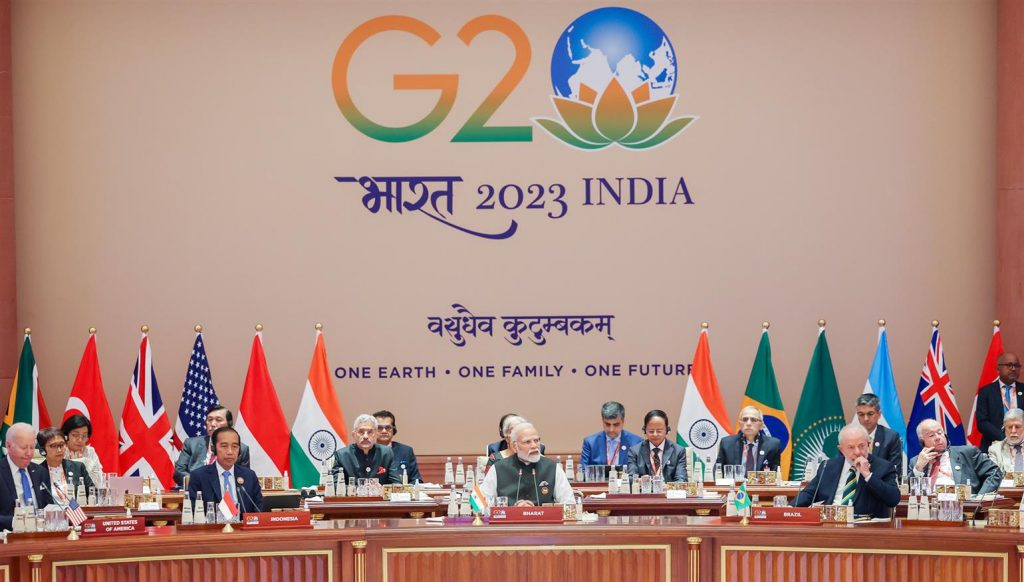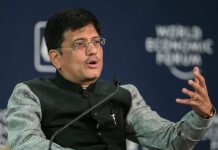
At the political level, there are enough gains to be had for the BJP by championing Bharat. It projects itself as a nationalist party and demonstrates that it roots for everything Indian, rather Bharatiya.
“What’s in a name/That which we call a rose /By any other name would smell as sweet”
When William Shakespeare wrote these lines for Juliet to profess her love for Romeo, little did he know that a few centuries later, there would be a hullabaloo over a mere name. Neither had he fathomed the extent of the controversy and its fall out. Little did Shakespeare know that the’ what’s in a name’ theory would, one day, flip on its head and kick up a political storm in this part of the world: India to be specific.
Yes, but India is no longer India. If the BJP-headed Government has its way, they would erase the anglicized name to a purely desi, puritan, one.
There is nothing new in this move.
The BJP, it is well known, has publicly shunned whatever is British. Yet, going the whole hog to change the name of the country was a bit of a surprise, to put it mildly.
For many, it was nothing less than a shock.
Quite contrary to its track record where the Government goes to town with whatever little or big it does, this time around it just slipped in the name, quietly pushed out India and replaced it with Bharat.
So how did all this start? Rather when did this become public?
It was days before the dinner President Droupadi Murmu had on the side-lines of the G20 summit.
The invite read: President of Bharat instead of the customary President of India. Given that the invites were in English, the change was visible and somewhat intriguing, to say the least.
Convention has it that the President is referred to as President of India in English and Bharat ke Rashtrapati in Hindi. But this time around, it was not the language but the nomenclature war that seemed to have erupted.
Convention apart, the Constitution of India states: “We the people of India…” and goes on to say “India, that is Bharat…”
In the Hindi version of the Constitution, Bharat replaces India: “Bharat, that is India, shall be a Union of States”.
Hence there is no aberration here.
So what is all this noise about?
Is it because the BJP-led Government chose to reiterate what the Constitution had already spelt out? Is it the manner in which it was done? Or is it that the BJP let the change slip in, as it were, without consulting the stakeholders, in this case the Opposition and the political spectrum across the Board?
Is this yet another attempt to erase the legacy of the colonial past? Or is this the niggle of no announcement, no warning and no heads-up but a simple invite which said President of Bharat instead of the customary President of India.
It could be neither, either or all of the above.
As for the colonial past bit, there is little evidence to prove that the name India was a brainchild of the British. It predates the colonial roots, tracing its origins to the river Indus, Sindhu in Sanskrit. As for Bharat, it is mentioned in the scriptures.
While there is a hullabaloo over the President’s invite, what has perhaps escaped attention is the fact that the Government had “done the deed” as it were much before the President’s invite was sent out.
If reports are anything to go by, Prime Minister Narendra Modi was referred to as Prime Minister of Bharat during his official visits to South Africa and Greece last month.
Hence the President’s invitation is not the first but it generated enough controversy. In one sense, it also sealed the name.
The invite apart, at the high table at the G-20 Summit, the country name flanking Prime Minister Modi was Bharat.
All hell broke loose and the country indulged in an endless debate of Bharat versus India.
Those who grew up in India do not seem to belong to Bharat. It is the name for the other India: the non-elitists, the Hindi speaking, the rural and the unlettered.
It is the versus that seems to be the issue. On the face of it, interchangeability is acceptable but a name change perhaps is not.
In other words, the use-both theory has more takers than replacing India with Bharat. Simply put, this means Indians can go with India while Bharatiyas can root for Bharat.
Were that to happen it would be kind of a status quo because the Constitution provides for both. So how would BJP score a point? And if it does not, then why would it go that extra mile?
Clearly, the BJP is eyeing a double advantage.
The first is at the national level where going back to its roots resonates with that class of Indians who rue the devaluation of the Indian ethos and want to shed off the weight of the erstwhile imperialism; take pride in everything that is Indian and rooted deeply in its civilisation; look the world in the eye with the pride of being Indian; and proud of using its original name and tell the world that we do not shy away from what is intrinsically and basically embedded in our history and culture.
At the political level, there are enough gains.
For starters, it projects the BJP as a nationalist Party and demonstrates its government as being one that roots for everything Indian, rather Bharatiya.
More importantly, it showcases Prime Minister Modi as one who has resurrected lost Indian values from the debris: those that past governments had ignored or given a go-by to. That this would reap electoral benefits is a given.
In fact, the Bharat spiel is likely to add to the BJP vote-kitty which seems to be better than what it was a few months ago.
Rising prices, unemployment, the dictatorial style of governance, muzzling the media and the Opposition coming together under the I.N.D.I.A. banner have been worrying factors.
In fact the Opposition conglomerate seems to be the last straw.
In this context, the assumption that country-renaming is a knee jerk reaction to the I.N.D.I.A. nomenclature, has takers. Delhi Chief Minister Arvind Kejriwal sought to know whether the Government would change the name Bharat too, if the I.N.D.I.A. alliance is rechristened Bharat?
Irrespective, the BJP seems upbeat.
Armed with Bharat, the resounding success of the G-20 Summit, both in terms of content and optics, the opening of the Ram temple in Ayodhya, the success of Chandrayan and Aditya, the moon and the sun solar missions respectively, is enough political ammunition.
Post the G-20 summit, the elite can rejoice at India occupying center-stage on the world stage; Modi devotees can sing peons at the name game; the other India get a sense of inclusion with the resurrection of Bharat; the devout thronging the temple at Ayodhya and the aspirational generation holding their head high at the success of the lunar and solar missions: all these are right ingredients for Prime Minister Modi to hammer on in the run-up to the 2024 election, complete with his one-liners and gift of rhetoric.












